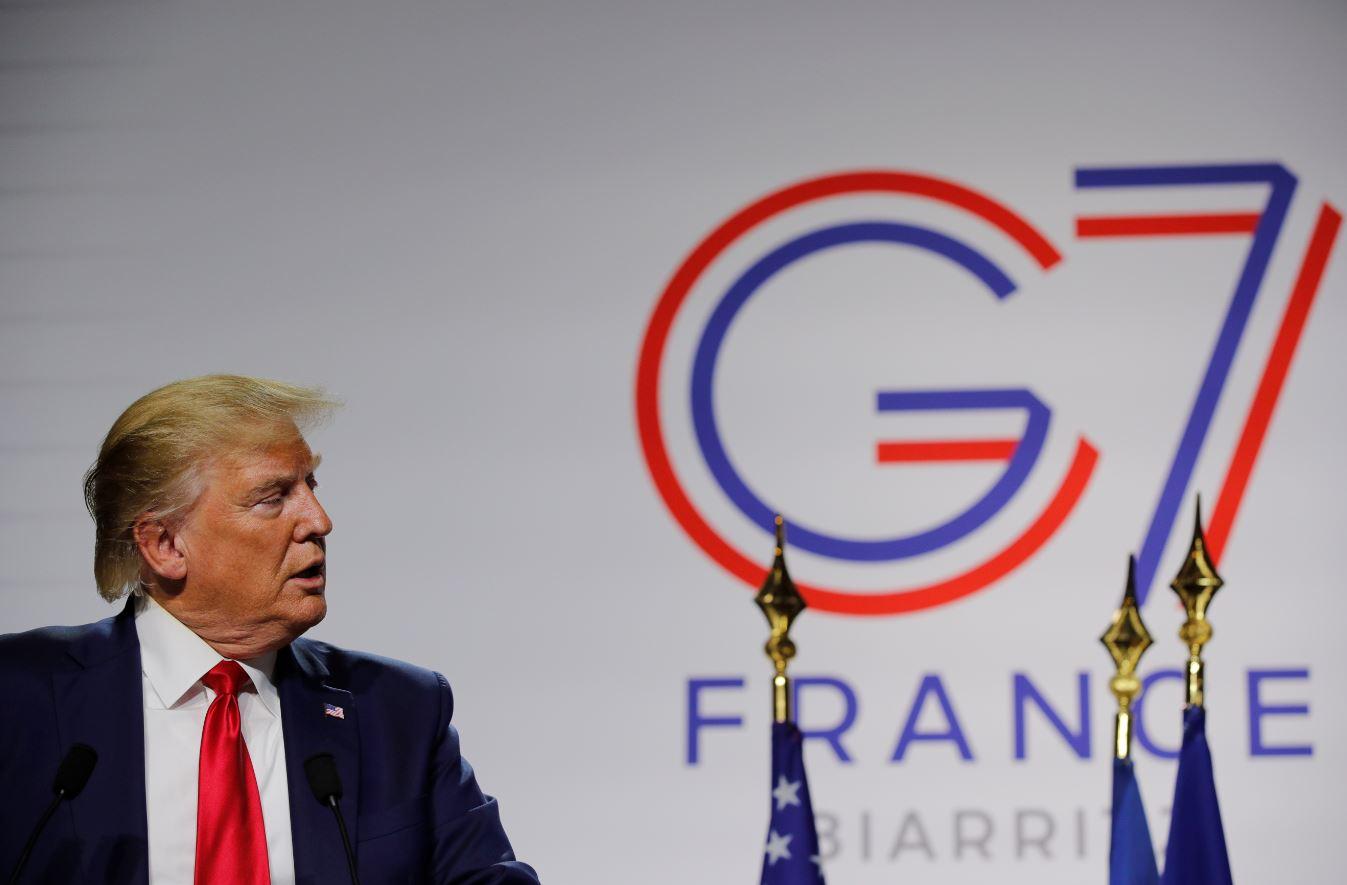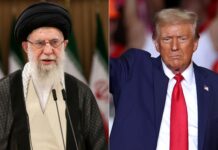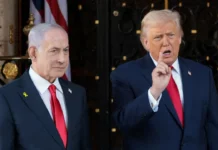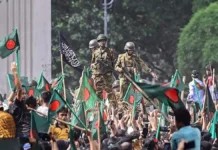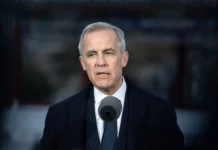BIARRITZ (FRANCE): The future reintegration of Russia into the elite G7 group of the world’s rich nations divided leaders at its summit in France on Monday, as President Donald Trump pushed for Moscow to be allowed back after its 2014 expulsion. Russia was kicked out of what was then the Group of Eight — even as Moscow was holding its presidency — after it annexed Ukraine’s Black Sea peninsula of Crimea, a move never recognised by the international community.
But US President Donald Trump, who will host next year’s G7 summit, said he would certainly invite Russia to the event, though he doubted his Russian counterpart Vladimir Putin would want to come if it was only as a guest. And the host of this year’s event, French President Emmanuel Macron, has also said it would be appropriate to include Russia if key conditions concerning the conflict in Ukraine are met.
But Britain, whose ties with Russia hit a new low following the 2018 chemical poisoning on its territory of ex-Russian double agent Sergei Skripal, which London blamed on the Kremlin, has spoken out against Moscow’s readmittance. The issue came to a head during lengthy discussions at the first official G7 dinner on Saturday, where the premiers and heads of state — also including those of Germany, Japan, Italy and Canada — put forward “forthright” positions on the issue, said a source close to the discussions, asking not to be named.
“You did very well last night, President Macron,” Johnson told his French host on Sunday as the leaders met for a session to discuss the world economy. “That was a difficult one.” Sources later confirmed that Johnson had been referring to Macron’s stewardship of the dinner in the debate over Russia as the leaders pushed their “strong” views on the matter.
Diplomats said the leaders were generally in favour of reinforcing coordination with Russia, but felt it was too early for reintegration. “I’d certainly invite him (Putin),” Trump told a press conference as the G7 wound up on Monday. “Whether he could come or not, psychologically, I think that’s a tough thing to do,” Trump added. “He’s a proud person.” Trump accused his predecessor Barack Obama of having Russia thrown out of the group after he was “outsmarted” by Putin on the conflicts in both Ukraine and Syria.
“A lot of people say having Russia inside the room is better than having them outside… My inclination is to say ‘yes they should be'” allowed back, Trump said.
Macron had said in the run-up to the summit that it would be “appropriate” for Russia to rejoin the group, and less than a week before the event he held several hours of talks with Putin at his summer residence. But Macron said that first a solution must be found for Ukraine, where in addition to the annexation of Crimea, pro-Moscow separatists declared unrecognised breakaway statelets in the eastern regions of Donetsk and Lugansk.
German Chancellor Angela Merkel, who shares Britain’s wariness about Russia rejoining the group, said herself, Macron, Putin and new Ukrainian President Volodymyr Zelensky would soon meet in a bid to relaunch the peace process. Moscow joined the group in 1998 — when the G7 became the G8 — under the presidency of Boris Yeltsin as the West tried to anchor post-Soviet Russia into the international community.
But tensions intensified throughout Putin’s ascendancy in Russia, and in 2012 he skipped a G8 summit hosted by the United States shortly after he was re-elected president following a stint as prime minister. Ironically, Russia held the G8 presidency in 2014 but a planned summit in June of that year in the Black Sea resort of Sochi never took place as it was expelled from the group. The other seven countries instead met in Brussels.
Like Britain, Canada also strongly opposes readmitting Russia unless seized Ukrainian territory is handed back. EU Council President Donald Tusk meanwhile said that “under no condition” could he accept the logic of maintaining the status quo in Ukraine and allowing Russia to return to the G8.
“The reasons why Russia was disinvited in 2014 are still valid,” Tusk said. “When Russia was invited to the G7 for the first time (under Yeltsin), it was believed that it would pursue the path of liberal democracy, rule of law and human rights. “Is there anyone among us who can say out of full conviction, not out of business calculation, that Russia is on that path?” Tusk asked, retorting that it should be Zelensky, not Putin, who is invited to the next G7. (AFP)

